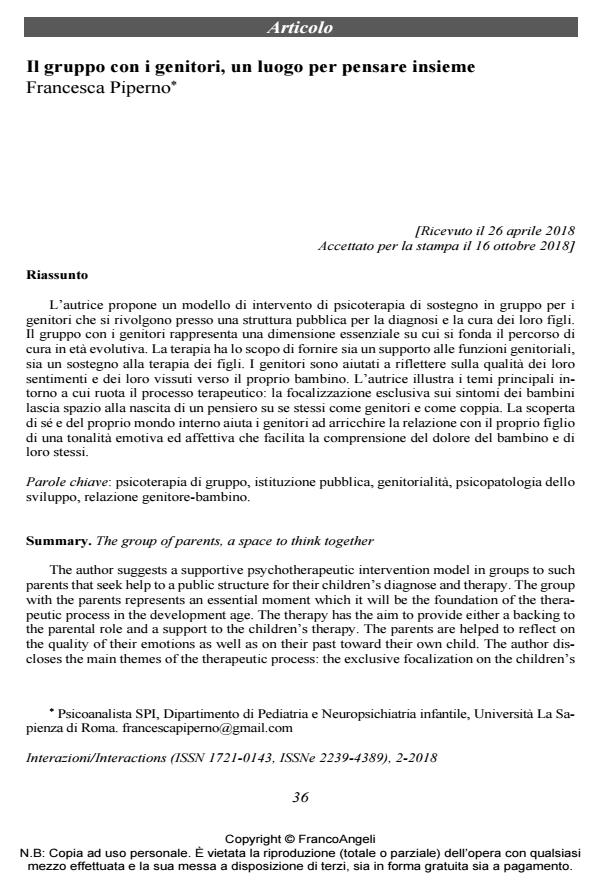The group of parents, a space to think together
Journal title INTERAZIONI
Author/s Francesca Piperno
Publishing Year 2018 Issue 2018/2
Language Italian Pages 14 P. 36-49 File size 179 KB
DOI 10.3280/INT2018-002004
DOI is like a bar code for intellectual property: to have more infomation
click here
Below, you can see the article first page
If you want to buy this article in PDF format, you can do it, following the instructions to buy download credits

FrancoAngeli is member of Publishers International Linking Association, Inc (PILA), a not-for-profit association which run the CrossRef service enabling links to and from online scholarly content.
The author suggests a supportive psychotherapeutic intervention model in groups to such parents that seek help to a public structure for their children’s diagnose and therapy. The group with the parents represents an essential moment which it will be the foundation of the therapeutic process in the development age. The therapy has the aim to provide either a backing to the parental role and a support to the children’s therapy. The parents are helped to reflect on the quality of their emotions as well as on their past toward their own child. The author discloses the main themes of the therapeutic process: the exclusive focalization on the children’s symptoms allows the birth of thoughts about themselves as parents and as a couple. The acknowledgment of themselves and their inside world helps the parents to enrich the relationship with their child with an emotional and affective tone that facilitates the comprehension of the child and parent’s pain.
Keywords: Group psychotherapy, public institution, parenthood, development’s psycho-pathology, parent-child relation.
Francesca Piperno, Il gruppo con i genitori, un luogo per pensare insieme in "INTERAZIONI" 2/2018, pp 36-49, DOI: 10.3280/INT2018-002004